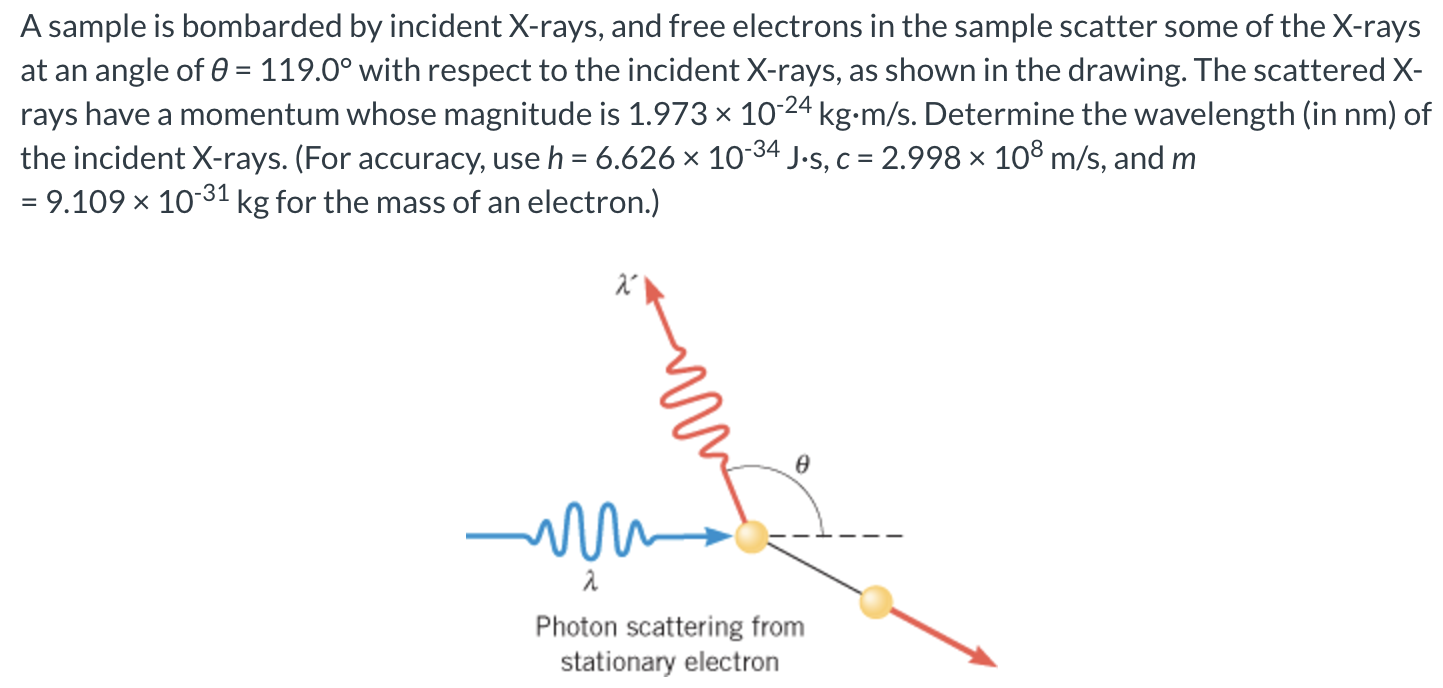A sample is bombarded by incident X-rays, and free electrons in the sample scatter some of the X-rays at an angle of θ = 119.0∘ with respect to the incident X-rays, as shown in the drawing. The scattered X rays have a momentum whose magnitude is 1.973×10−24 kg⋅m/s. Determine the wavelength (in nm) of the incident X-rays. (For accuracy, use h = 6.626×10−34 J⋅s, c = 2.998×108 m/s, and m = 9.109×10−31 kg for the mass of an electron.)
